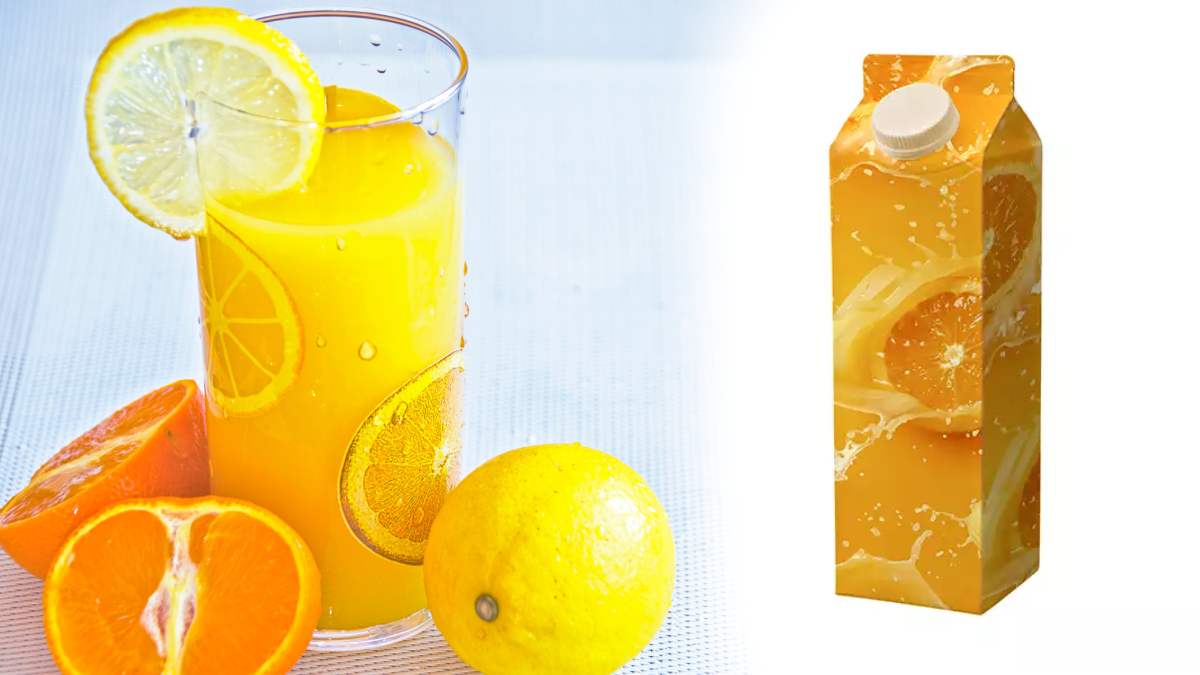In the realm of modern convenience, packed juices have become a ubiquitous presence, promising the refreshing taste of fruits in a convenient, portable form. However, beneath the colorful labels and enticing packaging, there are hidden health hazards that consumers should be aware of. This exploration delves into the intricacies of packed juices, shedding light on the potential risks associated with their consumption.
- Added Sugars: The Sweet Dilemma
Packed juices, often marketed as a healthier alternative, frequently harbor an alarming amount of added sugars. Despite the perception of being a natural product, these beverages can contribute significantly to daily sugar intake. Excessive sugar consumption is linked to various health issues, including obesity, type 2 diabetes, and cardiovascular diseases. A critical examination of nutritional labels is essential to unmask the sweet deception and make informed choices for a healthier lifestyle.
Read More: Beyond Smog: Exploring Urban Oases – 5 Indian Cities Balancing Beauty, Clean Air
- Preservatives and Additives: Unseen Culprits
Preservatives and additives, integral to prolonging the shelf life of packed juices, raise concerns about their long-term impact on health. While considered safe in limited quantities, extended exposure to these chemicals may lead to adverse reactions. Sensitivities vary among individuals, and the hidden presence of additives can result in headaches, digestive issues, or allergic responses. Informed consumers should scrutinize ingredient lists to avoid potential health risks associated with the unseen culprits present in these seemingly innocent beverages.
- Reduced Nutritional Value: Dilution of Goodness
The juicing process employed to create packed juices often results in a loss of essential nutrients found in whole fruits and vegetables. While these beverages may offer a burst of vitamins, minerals, and antioxidants, the absence of fiber is a significant drawback. Fiber plays a crucial role in digestive health, promoting satiety, regulating blood sugar levels, and contributing to heart health. Consumers should be aware that the nutritional value of packed juices may be diluted compared to consuming whole fruits and vegetables.
- High Caloric Content: The Unintended Consequence
Contrary to their perceived healthiness, packed juices can be surprisingly calorically dense. Consuming these beverages in excess may contribute to an imbalance in daily caloric intake, potentially leading to weight gain and associated health issues. A conscientious understanding of the caloric content is crucial for individuals aiming to maintain a healthy weight and lifestyle, highlighting the unintended consequences of what may appear to be a refreshing and harmless drink.
- Lower Fiber Content: The Missing Link
The juicing process separates the liquid from the fibrous components of fruits and vegetables, resulting in packed juices lacking the dietary fiber present in whole foods. Fiber is vital for digestive regularity, the prevention of constipation, and the regulation of blood sugar levels. The absence of natural fiber in packed juices diminishes their nutritional value and potential health benefits, emphasizing the missing link between these beverages and the wholesome goodness found in consuming whole fruits and vegetables.
- Risk of Contamination: A Silent Threat
Improper handling, storage, or processing of packed juices may introduce the risk of bacterial contamination, posing a potential silent threat to consumer health. Harmful microorganisms, if present, can lead to foodborne illnesses, causing symptoms such as nausea, vomiting, and diarrhea. Maintaining stringent hygiene standards in the production and distribution of these beverages is paramount to mitigate the risk of contamination and ensure the safety of consumers.
Read More: What! Shivering For 15 Min Burns As Much Calories As Doing Exercise For 1 Hr: Study
Packed Juices – Conclusion: Navigating the Juicy Maze
In the pursuit of convenience, consumers must navigate the deceptive allure of packed juices with caution. Making informed choices, such as opting for freshly squeezed juices at home, choosing 100% fruit juices without added sugars, and reading ingredient lists, empowers individuals to mitigate potential health risks. While packed juices may offer a quick fix for thirst, the price of convenience necessitates a nuanced understanding of the hidden hazards, ensuring that health-conscious consumers make choices aligned with their well-being.












